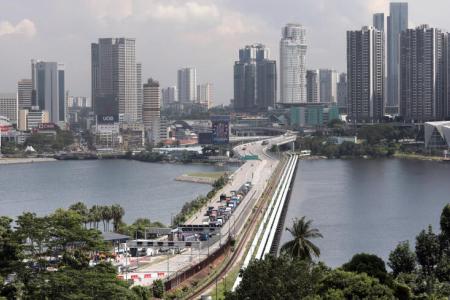Singapore, Malaysia to reopen land borders on April 1
From April 1, those who are fully vaccinated will be able to travel between Singapore and Malaysia by land, including driving, without testing or quarantine.
This is likely to kickstart short trips that previously made up the bulk of travel between the neighbouring countries.
"As both sides have made good progress in managing Covid-19, we agreed that it is timely to further reopen our land border," said Prime Minister Lee Hsien Loong after he spoke with Malaysian Prime Minister Ismail Sabri Yaakob on Thursday morning.
The Malaysian Prime Minister said this was a significant milestone in restarting travel between Singapore and Malaysia.
"Today's announcement reflects the long-standing relations and multifaceted cooperation as well as strong people-to-people ties between the two countries. This will certainly contribute to the recovery efforts with positive impacts on the economies and livelihood of the peoples of both countries".
The announcement came after PM Lee announced a decisive shift in Singapore's policies to treat Covid-19 as endemic, including increasing group size limits to 10 and making wearing masks optional outdoors.
The easing of Singapore-Malaysia border restrictions effectively returns movement between the two countries to much like it was before the pandemic, when 415,000 people crossed the Woodlands Causeway and Tuas Second Link daily.
This is expected to allow people who work across the border to more confidently return to their jobs. Families who had been separated no longer have to worry about scrambling for bus tickets to see each other.
Before the pandemic, tourism receipts from Malaysian tourists for Singapore formed the 7th largest by destination, just behind United States and Japan and ahead of South Korea.
Singaporean tourists also spent the most in Malaysia; about $6.59 billion in 2019.
But the Ministry of Trade and Industry in a statement on Thursday cautioned that people should refrain from all driving into Malaysia on April 1.
The need for both countries to relax controls for movement between the two countries have been in discussions for a while, and became ever more likely as the Omicron wave came down from its peak and as evidence emerged that it was less lethal.
Get The New Paper on your phone with the free TNP app. Download from the Apple App Store or Google Play Store now


